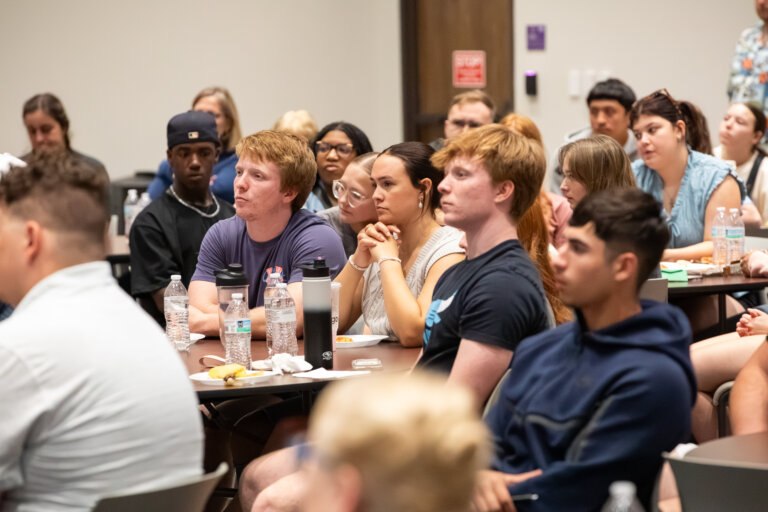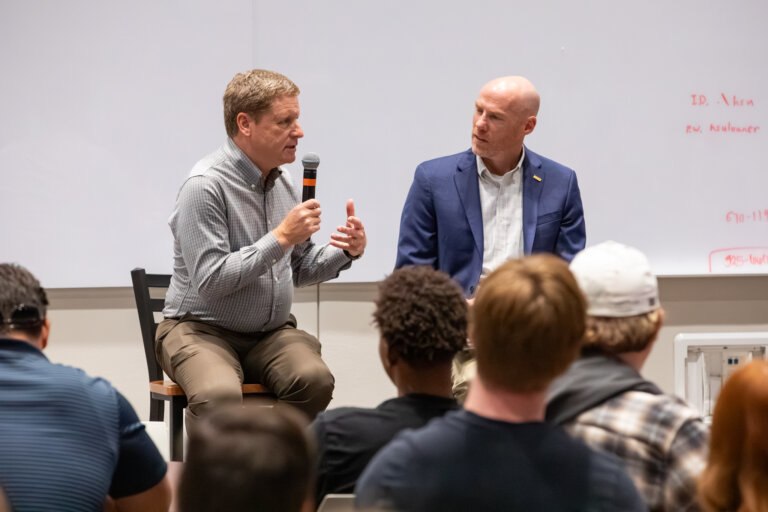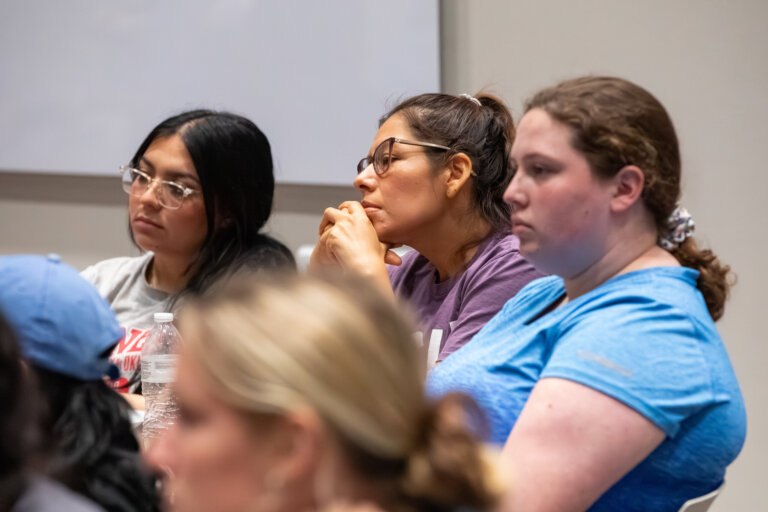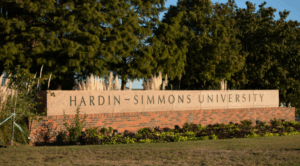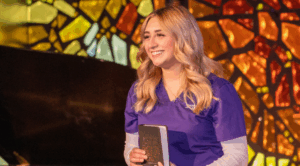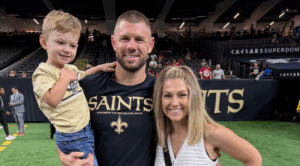MIT Engineer Turned Pastor Bridges Faith and Science Seminar
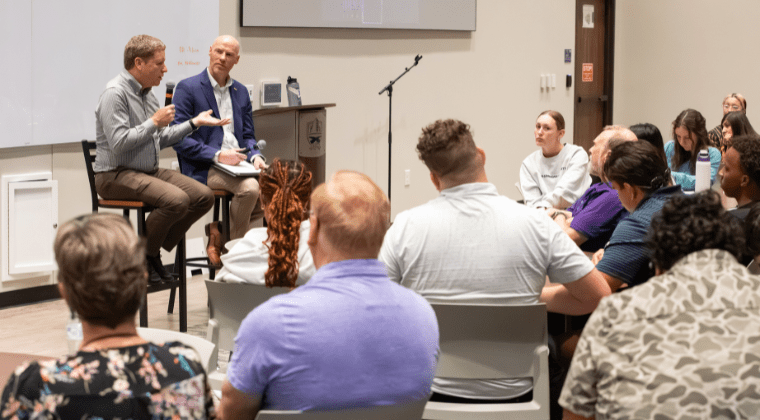
With students filling every seat and standing along the walls, Hardin-Simmons University hosted Dr. Andrew M. Davis, senior pastor of First Baptist Church of Durham, N.C., for a seminar that challenged students to see no contradiction between their scientific ambitions and their Christian faith.
Davis’s unconventional journey from MIT engineering labs to the pulpit drew students from both Hardin-Simmons and Abilene Christian University. Speaking directly to those pursuing science, technology, engineering, and mathematics, he emphasized that rigorous academic training and deep Christian faith can reinforce rather than compete with one another.
“I love science, and I love God. I love scripture,” Davis told the audience of aspiring engineers, doctors, and researchers. “I don’t see any contradiction between true, good, faithful science and good, sound biblical interpretation in theology. None at all.”
Before leading one of the most prominent Southern Baptist churches in North Carolina, Davis studied mechanical engineering at the Massachusetts Institute of Technology and later worked in semiconductor manufacturing and robotics. His junior year at MIT proved pivotal. After nearly a year of conversations with a fraternity brother about the gospel, he said a late night in the lab became a turning point when he felt a clear call to attend a campus retreat. That decision, Davis explained, marked the beginning of his faith in Christ and set a new direction for his life.
For the past several decades, Davis has served as senior pastor of First Baptist Church of Durham, situated in the heart of the Research Triangle — home to Duke University, the University of North Carolina and NC State. Known for its intellectual culture and secular environment, the area presents unique challenges for ministry, but Davis views it as an opportunity rather than an obstacle.
“Our area is filled with highly educated professionals,” Davis said. “They’re hard to reach, but I’m not intimidated. If someone knows something I don’t, I’ll listen and learn. But I also know the Bible will stand on its own. You don’t need to defend a lion — you unleash it.”
Davis credits his MIT training with strengthening rather than hindering his biblical study.
“I learned how to take complex problems and break them into subsystems,” he said. “For me to take a complex problem, like a text of scripture or theology as a whole, and break it into parts and then put it back together is literally what I do every week when I preach.”
Throughout the seminar, Davis urged students to align their professional lives with eternal priorities. Quoting Matthew 6:33 — “seek first his kingdom and his righteousness, and all these things will be added to you as well” — he encouraged students to see their STEM abilities as gifts for service.
“Each one of you has a mental, emotional gift for STEM that God can use,” he said. “He can bring you into certain areas to do research that will benefit humanity and glorify Christ.”
He also stressed the importance of scripture memorization, showing how intellectual rigor and spiritual discipline complement one another.
“If you can memorize formulas and processes, you can memorize the Word,” he challenged students.
Drawing from a decade in engineering, Davis shared practical strategies for living out faith in professional settings. He recalled hosting voluntary Bible studies at his jobs, noting that “if it’s voluntary and you get a conference room, people come.” These gatherings, he said, created natural opportunities for seekers to explore the gospel.
He also encouraged students to focus on “big picture” questions when engaging colleagues.
“Origin questions — where did everything come from? Destination questions — where is this all going?” Davis said. “Everyone has to answer those, and the Christian faith provides meaning where science alone cannot.”
The strong student turnout reflected HSU’s mission to prepare graduates who integrate academic rigor with spiritual formation. By hosting voices like Davis, the university demonstrates its commitment to equipping future scientists, engineers, and healthcare professionals with a faith that strengthens — rather than competes with — their academic training.
“All truth is God’s truth,” Davis said. “I just want to be sure it’s good sound theology and good science.”
Andrew Davis is the author of How to Memorize Scripture for Life: From One Verse to Entire Books. You can access all of his Bible teachings for free at Two Journeys.
